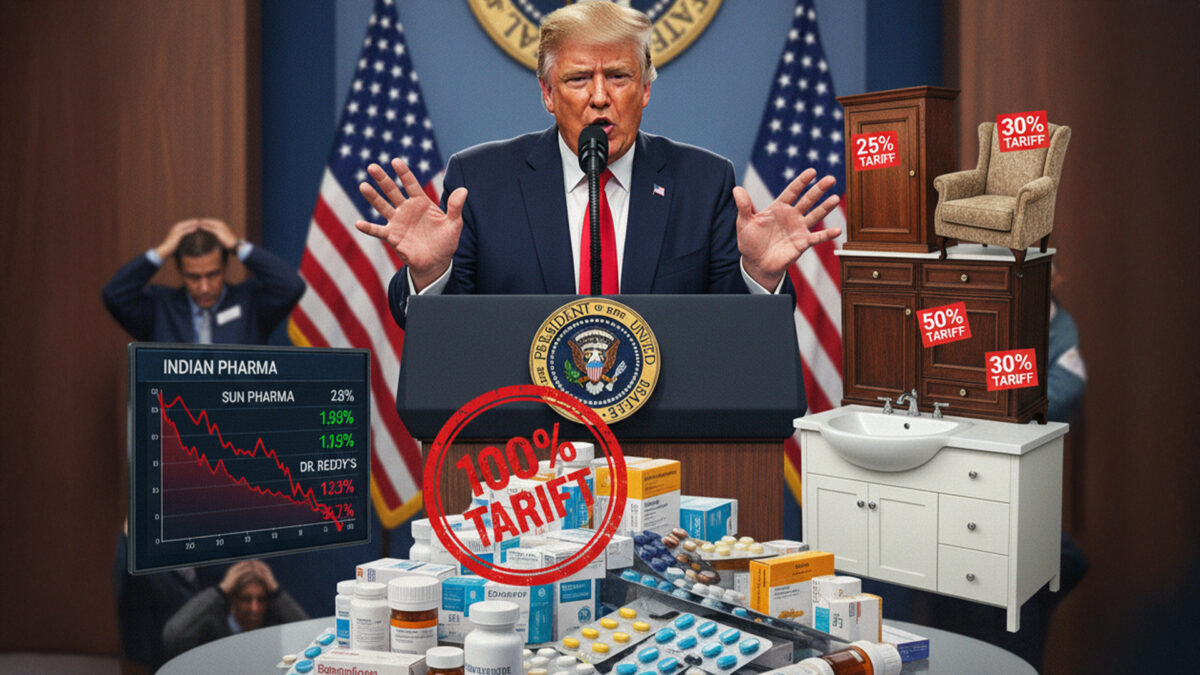United States President Donald Trump announced on Thursday that beginning October 1, the United States will levy a 100 % tariff on imports of branded or patented pharmaceutical products, unless the manufacturer is actively building a U.S.-based production facility.
He also unveiled fresh tariffs of 50 % on kitchen cabinets and bathroom vanities, 25 % on heavy-duty trucks, and 30 % on upholstered furniture as part of a broader push to shield domestic industries from foreign competition.
In social media posts on Truth Social, Trump defined the exemption for drugmakers as applying to those that have “broken ground” or already are “under construction” in the United States. He framed the moves as efforts to support U.S. manufacturing and cited national security, though he did not provide detailed legal or economic justification in his announcements.
The decision marks a dramatic escalation in Trump’s tariff strategy, which has already included sweeping duties on steel, aluminum, autos, copper, and other goods during his second presidency. Observers note that the pharmaceutical tariffs could disrupt global supply chains, raise the cost of medicines in the U.S., and provoke retaliation from trading partners.
In response to the announcement, Indian pharmaceutical stocks tumbled. The U.S. is a major market for Indian drug exports, although much of India’s trade is in generics rather than branded pharmaceuticals — which the tariff targets do not explicitly address. Several Indian companies, including Sun Pharma, saw share price declines of over 3 %.
Trump’s truck and cabinetry tariffs also went beyond pharmaceuticals. The 25 % tariff on imported heavy trucks is intended to protect U.S. manufacturers such as Peterbilt, Kenworth, Freightliner, and Mack from “outside competition,” Trump said. The 50 % tariff on kitchen cabinets and bathroom vanities and 30 % on upholstered furniture reflect his administration’s claims that foreign imports are “flooding” the U.S. market.
Trump’s announcement comes amid ongoing national security investigations under Section 232 of the Trade Expansion Act. Earlier in 2025, the Commerce Department launched probes into trucks, pharmaceuticals, and other imports to assess whether they threaten U.S. security. Some analysts suggest the tariff declarations may be a signal that these investigations are nearing completion.
Markets reacted swiftly. Pharmaceutical and furniture stocks in Asia declined, while U.S. sectors sensitive to construction and automotive supply chains also showed volatility. Critics warn that imposing such steep levies could exacerbate inflation, strain federal healthcare programs like Medicare and Medicaid, and destabilize bilateral trade relations. Proponents, however, argue the tariffs will incentivize reshoring of production and reduce reliance on foreign supply.
Trump’s sweeping tariff announcement is likely to dominate trade discourse in the coming weeks. The administration faces imminent pressure to define enforcement rules, determine which countries or products may receive exemptions, and respond to legal challenges as trading partners evaluate retaliation or concession strategies.
Also Read: Adani Energy Solutions Achieves Zero-Waste-to-Landfill Status Across All Sites
